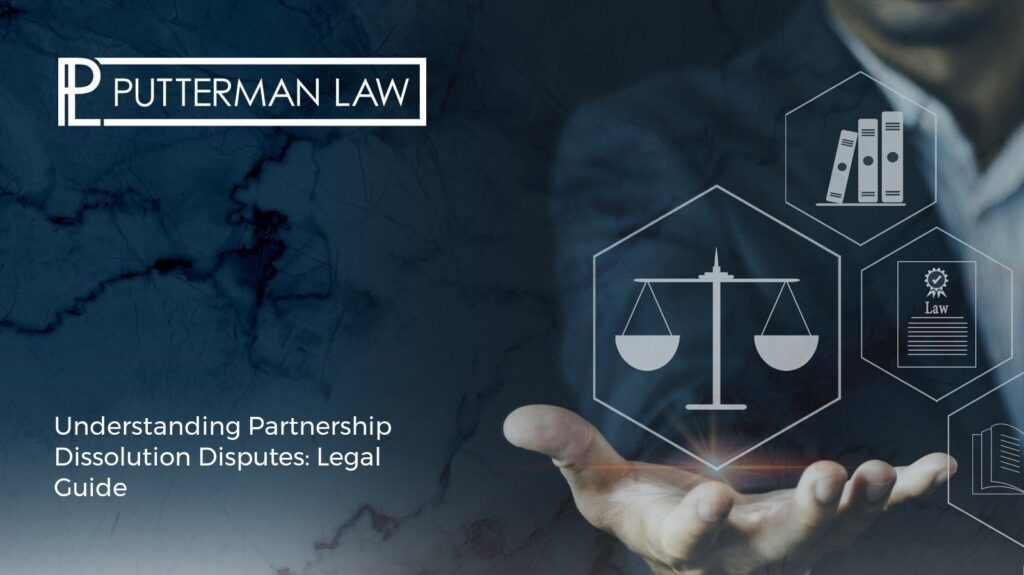Understanding Partnership Dissolution Disputes
What Constitutes a Partnership Dissolution?
Partnership dissolution occurs when a partnership is terminated and the business operation stops or is restructured. This process involves legally ending the relationship between the partners and addressing the obligations and responsibilities tied to the partnership. Common scenarios include partners opting to exit the business, initiating restructuring efforts, or addressing conflict or financial difficulties.
Common Causes for Dissolution Disputes
Several factors can lead to partnership dissolution disputes. Disagreements on business direction, financial issues, breach of partnership agreements, or loss of trust among partners are frequent contributors. These disputes can escalate quickly, straining both professional and personal relationships and disrupting business operations.
Immediate Steps to Take When Facing a Dispute
If you find yourself facing a partnership dissolution dispute, taking prompt action is crucial. First, review the partnership agreement for any dispute resolution clauses. Open communication with your partner can sometimes defuse issues before they escalate. Additionally, consult with a legal professional to understand your rights and obligations and to navigate the complexities of dissolution.
Legal Ramifications and Responsibilities
Legal Obligations During Dissolution
During dissolution, partners have specific legal obligations to fulfill. This includes settling debts, distributing assets, and finalizing any pending business transactions. Adhering to these responsibilities ensures a smoother dissolution process and minimizes potential legal complications.
Financial and Operational Impacts on Partners
Dissolving a partnership can have significant financial and operational impacts. Partners must navigate the division of assets and liabilities, potential loss of income, and possible disruption to business operations. Effective planning and transparent communication throughout the process are essential to mitigate these impacts.
Key Legal Documents and Agreements to Review
Key legal documents, such as the partnership agreement, shareholders’ agreements, and any operational contracts, play a central role during dissolution. Reviewing these documents is essential for understanding the terms, obligations, and rights of each partner. Any ambiguities or disagreements should be addressed with the assistance of legal counsel to prevent further disputes.
The Role of Litigation in Resolving Disputes
When Litigation Becomes Necessary
While amicable resolutions are ideal, litigation may become necessary when disputes cannot be resolved through negotiation or mediation. Litigation can provide a structured process to address and resolve complex issues, ensuring that all partners’ rights and interests are considered.
Understanding Your Legal Rights and Options
Understanding your legal rights and options is critical when facing litigation. This includes knowing what legal actions you can take, the potential outcomes, and the implications for both the partnership and individual partners. Consulting with experienced legal professionals can help you navigate these challenges and make informed decisions.
Preparing for the Litigation Process
Preparation is key to effectively managing the litigation process. Gathering evidence, organizing pertinent documents, and clearly understanding your legal position will strengthen your case. A comprehensive and strategic approach, guided by legal counsel, can significantly impact the outcome of the litigation.
Litigation Options for Partnership Dissolutions
Mediation and Arbitration: Alternative Dispute Resolutions
When facing a partnership dissolution dispute, many turn to mediation and arbitration as effective alternatives to traditional litigation. These methods often allow for more flexible and less adversarial resolutions. At Putterman Law, we advocate for mediation as it fosters open communication and a collaborative approach, often leading to satisfactory outcomes for all parties involved. Arbitration, on the other hand, provides a more formal setting where a neutral third party makes binding decisions. This can be beneficial if both parties seek a definitive resolution without the extended timelines typical of court cases.
Filing a Lawsuit: What to Expect in Court
Sometimes, despite best efforts, litigation becomes unavoidable. When filing a lawsuit, it’s crucial to understand the process thoroughly. Initially, a complaint is filed, detailing the grievances and desired outcomes. This leads to a discovery phase, where both parties gather evidence. Be prepared for multiple hearings and potential settlements before reaching a trial. We ensure that you are well-informed and prepared at each step, leveraging our extensive experience to streamline the process and advocate vigorously on your behalf.
Evaluating Costs and Timeframes for Different Litigation Methods
The costs associated with litigation can vary significantly based on the method chosen. Mediation and arbitration generally incur lower costs and shorter timeframes compared to traditional court cases. However, these costs can increase if the dispute is particularly complex or contentious. In contrast, a lawsuit can be more time-consuming and expensive, often stretching over months or even years. We always strive to offer clear cost-benefit analyses for each option, helping you make informed decisions that align with your business goals.
Common Legal Issues in Partnership Dissolutions
Breach of Fiduciary Duty
During a partnership dissolution, one prevalent issue is the breach of fiduciary duty. Partners are obligated to act in the best interest of the partnership and their co-partners. A breach occurs when actions are taken that benefit one partner at the expense of others. We can help identify breaches and seek remedies to address these violations. Ensuring fiduciary duties are upheld is crucial in mitigating risks and protecting interests.
Disputes Over Asset Distribution
Asset distribution often becomes a contentious point during dissolution. Disputes arise over how assets such as property, investments, and intellectual property should be divided. Equitable distribution can be complex, especially when there is no clear documentation outlining ownership and valuation. At Putterman Law, we facilitate negotiations and legal actions to ensure fair and just asset distribution, allowing you to move forward confidently.
Conflict Over Intellectual Property and Trade Secrets
Intellectual property and trade secrets often add layers of complexity to partnership dissolutions. Ownership disputes over patents, trademarks, and proprietary information can escalate quickly. It’s vital to protect your intellectual assets proactively. We offer guidance on safeguarding your interests and navigating related legal challenges effectively, minimizing disruption to your business operations.
Mitigating Risks and Protecting Interests
Best Practices for Record-Keeping and Documentation
Effective record-keeping and documentation are fundamental in navigating partnership dissolutions. Accurate records of financial transactions, agreements, and communications can serve as pivotal evidence during disputes. We recommend maintaining detailed and organized documentation from the outset of your partnership. This proactive approach can serve as a protective measure, reducing the likelihood of protracted disputes.
Importance of Clear Communication During the Process
Clear and consistent communication is essential during a partnership dissolution. Misunderstandings and miscommunications can exacerbate conflicts. By fostering transparent dialogue, many issues can be resolved more amicably. At Putterman Law, we emphasize the importance of maintaining open lines of communication to de-escalate tension and facilitate smoother negotiations.
Benefits of Legal Counsel in Navigating Litigation
The complexities of partnership dissolution disputes often necessitate professional legal support. Having experienced legal counsel can significantly impact the outcome of your case. We provide comprehensive legal services aimed at navigating the intricacies of litigation, ensuring your rights and interests are protected throughout the process. Partner with us for strategic, informed, and client-centric legal representation.
Did you know mediators resolve over 80% of disputes before litigation?
Alternative Dispute Resolutions (ADRs) like mediation are highly effective, often mitigating the need for costlier and more time-consuming court battles in partnership dissolution disputes.
Practical Steps for Business Owners
Consulting With Expert Legal Professionals
At Putterman Law, we strongly recommend that business owners seek the advice of legal experts early in the process. Our team is well-versed in handling partnership dissolution disputes and can offer personalized guidance tailored to your unique situation. By involving legal professionals from the outset, you can mitigate risks and navigate challenges more effectively.
Establishing a Partnership Dissolution Plan Early
Another critical step is to establish a comprehensive partnership dissolution plan as early as possible. This plan should outline the procedure for addressing potential disputes, how assets will be divided, and the roles and responsibilities of each partner during the dissolution process. Having a clear plan in place can help prevent misunderstandings and reduce the likelihood of conflicts escalating into litigation.
Proactive Measures to Prevent Future Disputes
Beyond dealing with the current dissolution, it’s essential to implement proactive measures that can help prevent similar disputes in the future. This might include revising partnership agreements to clarify terms more explicitly, improving communication channels among partners, and setting up regular review meetings to address concerns before they become major issues.
Resources for Further Support
Where to Find Legal Assistance and Counseling
For personalized legal advice, you can consult with our team at Putterman Law. We offer a comprehensive array of legal services that cater to various aspects of partnership dissolutions, including litigation resolution and dispute management. Our expertise ensures that you receive the guidance necessary to resolve conflicts effectively.
Recommended Reading and Case Studies
Staying informed on recent legal developments and reviewing case studies can provide valuable insights into the dissolution process. We recommend exploring legal journals, books, and online resources that focus on partnership laws and dispute resolution strategies. These can enhance your understanding and preparation.
Support Groups and Peer Networks for Business Owners
Connecting with other business owners who have experienced partnership dissolutions can offer practical advice and emotional support. Consider joining professional networks, business associations, or online forums where you can share experiences and learn from peers who have navigated similar challenges.
Legal Disclaimer and Final Thoughts
Disclaimer: The information provided in this blog is for informational purposes only and should not be construed as legal advice. Each partnership dissolution scenario is unique, and it is crucial to consult with legal professionals for advice tailored to your specific circumstances.
At Putterman Law, we are committed to helping our clients stay informed on legal developments and navigate the complexities of partnership dissolutions. We encourage you to seek expert guidance and take proactive measures to protect your business interests. Remember, being well-prepared can make all the difference in achieving a favorable outcome.
FAQ
What initial steps should we take when facing a partnership dissolution dispute?
When facing a partnership dissolution dispute, the first steps we recommend involve consulting with legal experts and reviewing all crucial documents related to your partnership. Additionally, ensure clear communication among partners and take immediate steps to protect sensitive business information and assets. Transparency and proper documentation are vital during this process.
How can we prevent partnership dissolution disputes from happening?
To prevent disputes, it’s imperative to have a detailed partnership agreement in place that clearly outlines each partner’s roles, responsibilities, equity shares, and the procedure for resolving conflicts. Regularly communicating and addressing concerns promptly can also reduce the risk of disputes. We often advise revising partnership agreements periodically to reflect current business operations and goals.
What resources does Putterman Law provide for partners facing dissolution disputes?
At Putterman Law, we provide a range of legal services tailored to partnership dissolution, including dispute resolution, mediation, and litigation support. We also recommend partners to review legal journals and case studies for additional understanding and encourage joining support groups and peer networks to share experiences and obtain additional support.
Why is it important to establish a partnership dissolution plan early on?
Establishing a partnership dissolution plan early on provides clarity and a structured approach to handling the end of a partnership. It can proactively define the process for asset distribution, conflict resolution, and responsibilities, which can mitigate risks and prevent costly and time-consuming litigation. We emphasize creating a dissolution plan as a pivotal preventative measure.
Can we avoid going to court if we’re currently involved in a partnership dissolution dispute?
Absolutely. It’s often possible to resolve disputes through alternative dispute resolutions such as mediation or arbitration, which we at Putterman Law can help facilitate. These options can be less adversarial, more cost-effective, and quicker than traditional litigation. However, if the dispute cannot be resolved through these means, we are prepared to represent and guide our clients through the litigation process.






